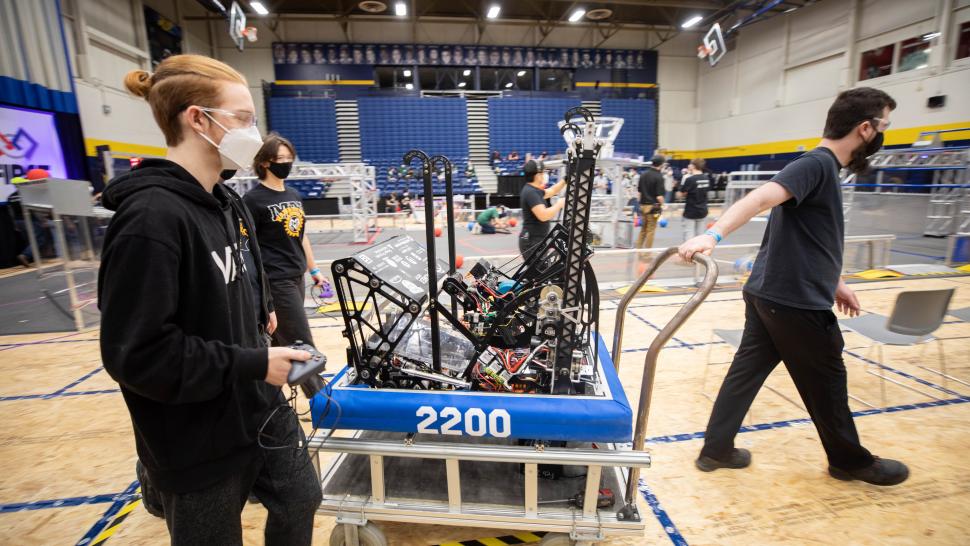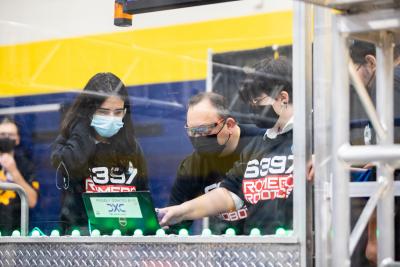
Sounds of metal clanging, power tools buzzing and engines whirring filled the Athletic Centre at Humber College’s North Campus on the first weekend of March as 450 high school students took part in the FIRST Robotics Competition.
During the two-day competition, 30 teams representing schools from London to Kingston, Ontario flexed their engineering, coding and design skills as they put their homemade robots to the test in a series of specially designed challenges. The student-built robots, each weighing more than 100 pounds, had to throw balls with precision and climb on a series of monkey bars in order to collect the most points.
The Humber-hosted competition was a long time coming after a two-year hiatus due to the COVID-19 pandemic. “After two years without stepping foot, or wheels, on the field, we are excited to return to in-person events for the FIRST Robotics Competition season,” said Dave Ellis, president of FIRST Robotics Canada.
The excitement for a return to competition was obvious as the energy in the Humber North Athletic Centre was electric. This year, competitors addressed global challenges related to United Nations Sustainable Development Goal #9, focused on building resilient infrastructure, promoting inclusive and sustainable industrialization, and fostering innovation.

Joana Varguise, a Grade 11 student at Mildred's-Lightbourn School in Oakville, has participated in FIRST Robotics events since she was in the eighth grade. She says building robots and entering them in these competitions is fun and inspiring. “I love science and creating and since joining the team at my school I’ve decided to pursue a career in the medical field, maybe bioengineering.”
The goal of FIRST Robotics is to empower competitors to be the next generation of leaders and innovators who will go on to tackle the world’s toughest challenges.
“Humber believes work-integrated and hands-on learning are integral parts of the educational experience, and this competition represents a real-world engineering challenge that will help students develop their technical and team building skills,” said Chris Whitaker, president and CEO, Humber College. “The creativity and skill demonstrated by participants proves that our future is bright in the hands of the next generation of talented minds.”
Humber College is home to an award-winning Mechatronics skills varsity team and is a national leader in the field. Students learn alongside representatives from leading companies in robotics, 3D printing, and collaborative digital technologies.
The competition was full of challenges for the competitors and not just because of the difficulty of designing a working robot. Adding to the complexity was the need to navigate the COVID-19 pandemic.
“Teams have been working under challenging situations, with many not meeting in person until four weeks into the build season,” said Ellis. “We teach the kids that almost anything is possible with determination and hard work, and they're proving us right yet again.”